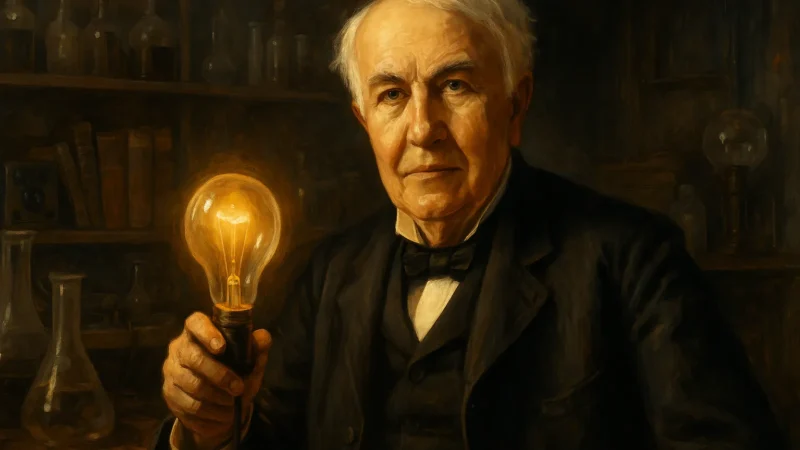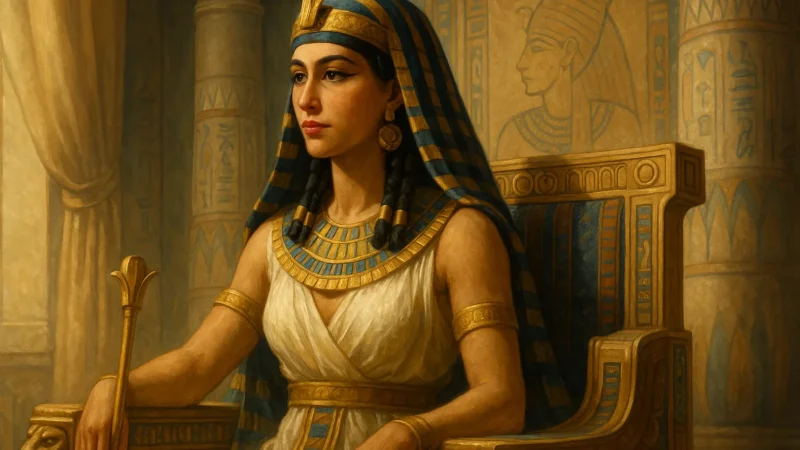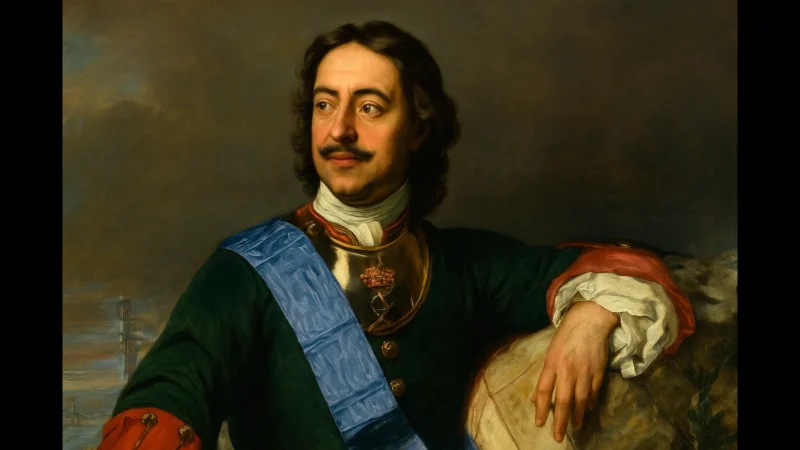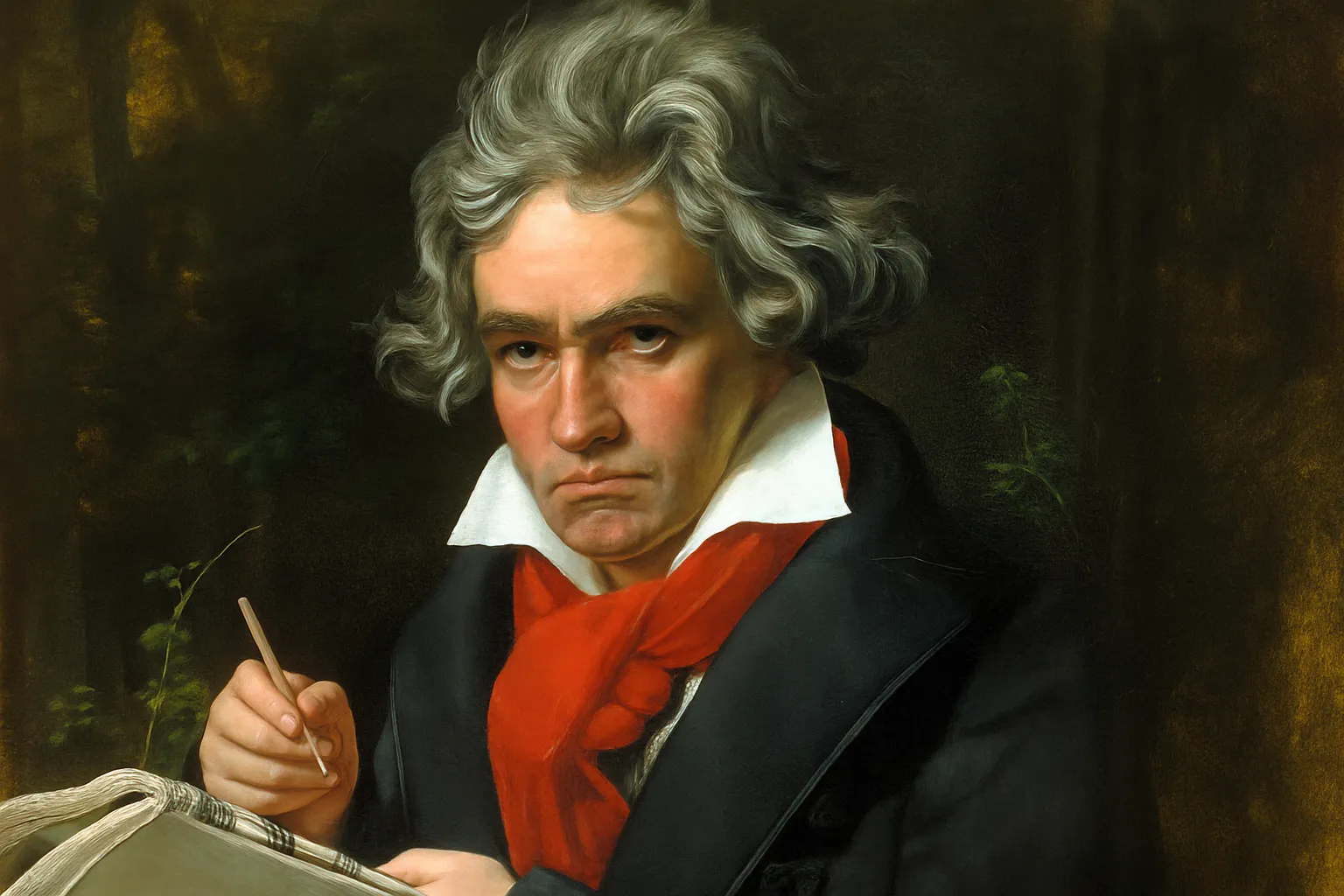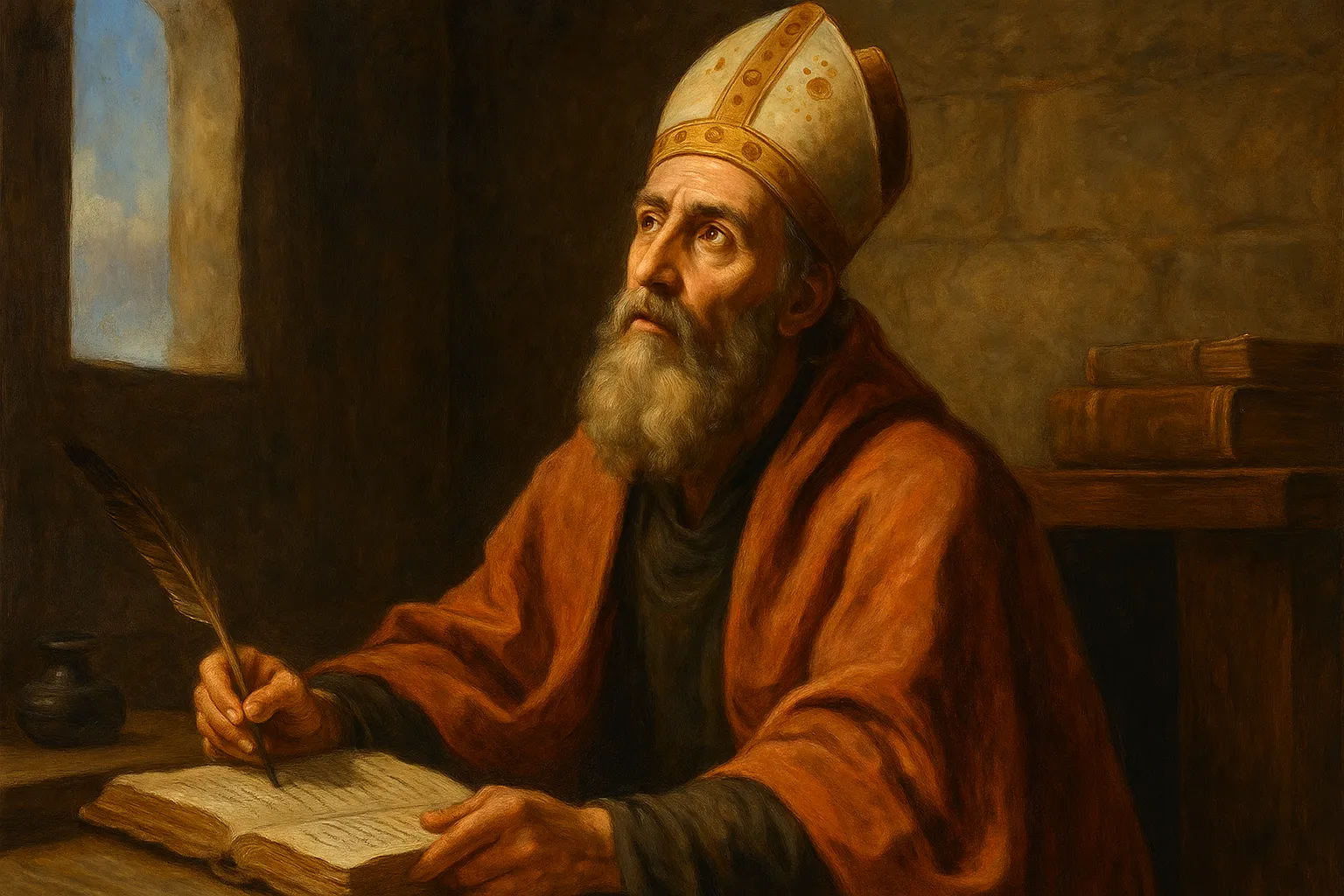Biography of Napoleon Bonaparte: the military genius who transformed the history of Europe
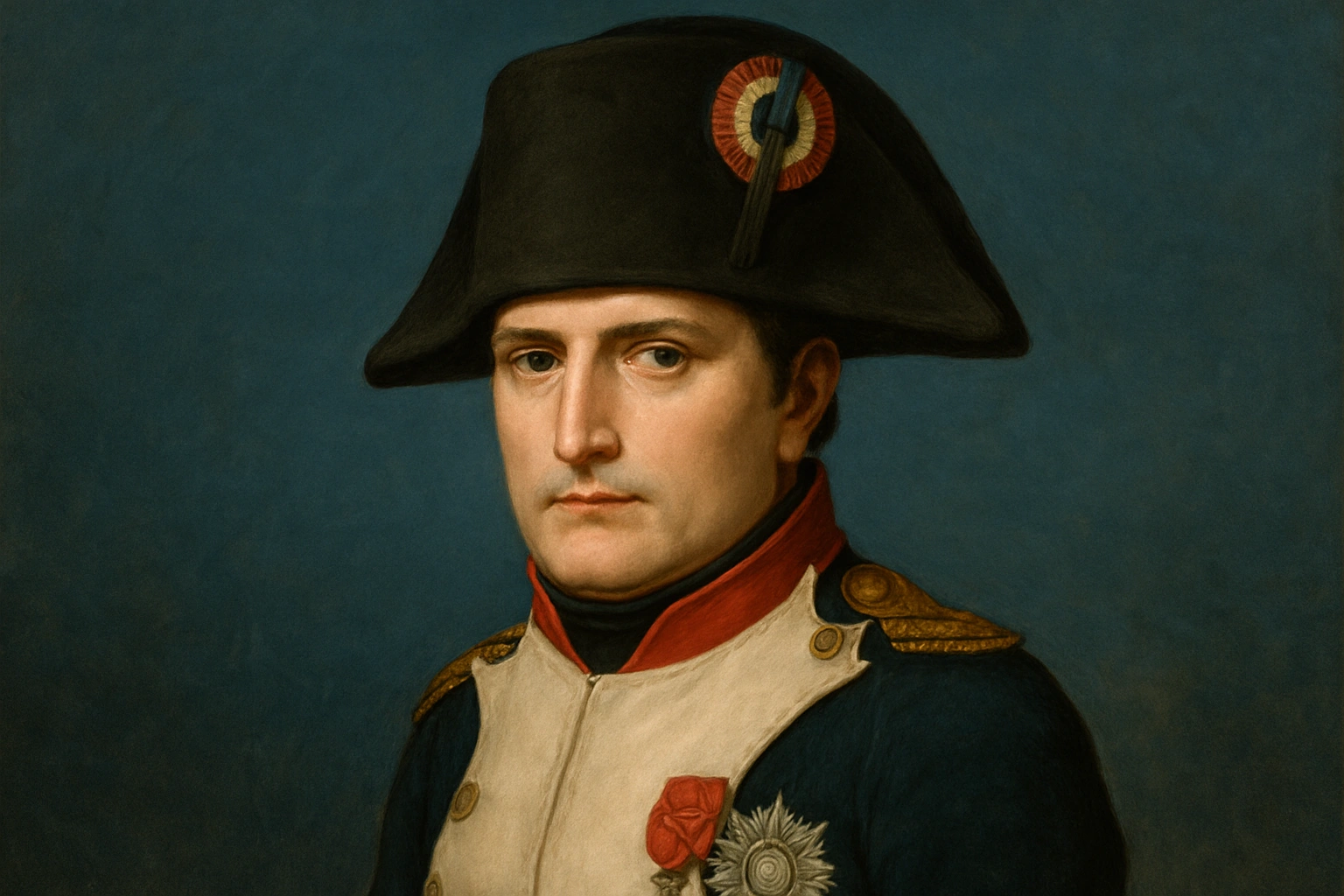
Napoleon Bonaparte is undoubtedly one of the most emblematic, complex, and extensively studied figures in modern history. His name evokes both the glory of his military triumphs and the controversy of his imperial ambitions. Throughout his life, Napoleon radically transformed the political map of Europe, altered the social structures of his time, and left a lasting legacy in legal and administrative systems across numerous countries.
This comprehensive biography explores his life in depth, from his humble origins in Corsica to his meteoric rise to power, his military campaigns, downfall, and enduring historical legacy.
Napoleon’s Early Life
Birth and Family Background
Napoleon Bonaparte was born on August 15, 1769, in Ajaccio, a small town on the island of Corsica, just one year after France annexed the island. His birth name was Napoleone di Buonaparte, reflecting his Italian heritage.
His father, Carlo Buonaparte, was a lawyer who supported Corsica’s integration into France, gaining certain privileges and scholarships for his children. His mother, Letizia Ramolino, played a fundamental role in raising Napoleon and his seven siblings, instilling discipline and ambition.
Although Napoleon came from minor Corsican nobility, his family was not wealthy. However, their social status allowed him to attend prestigious French educational institutions.
Education and Military Training
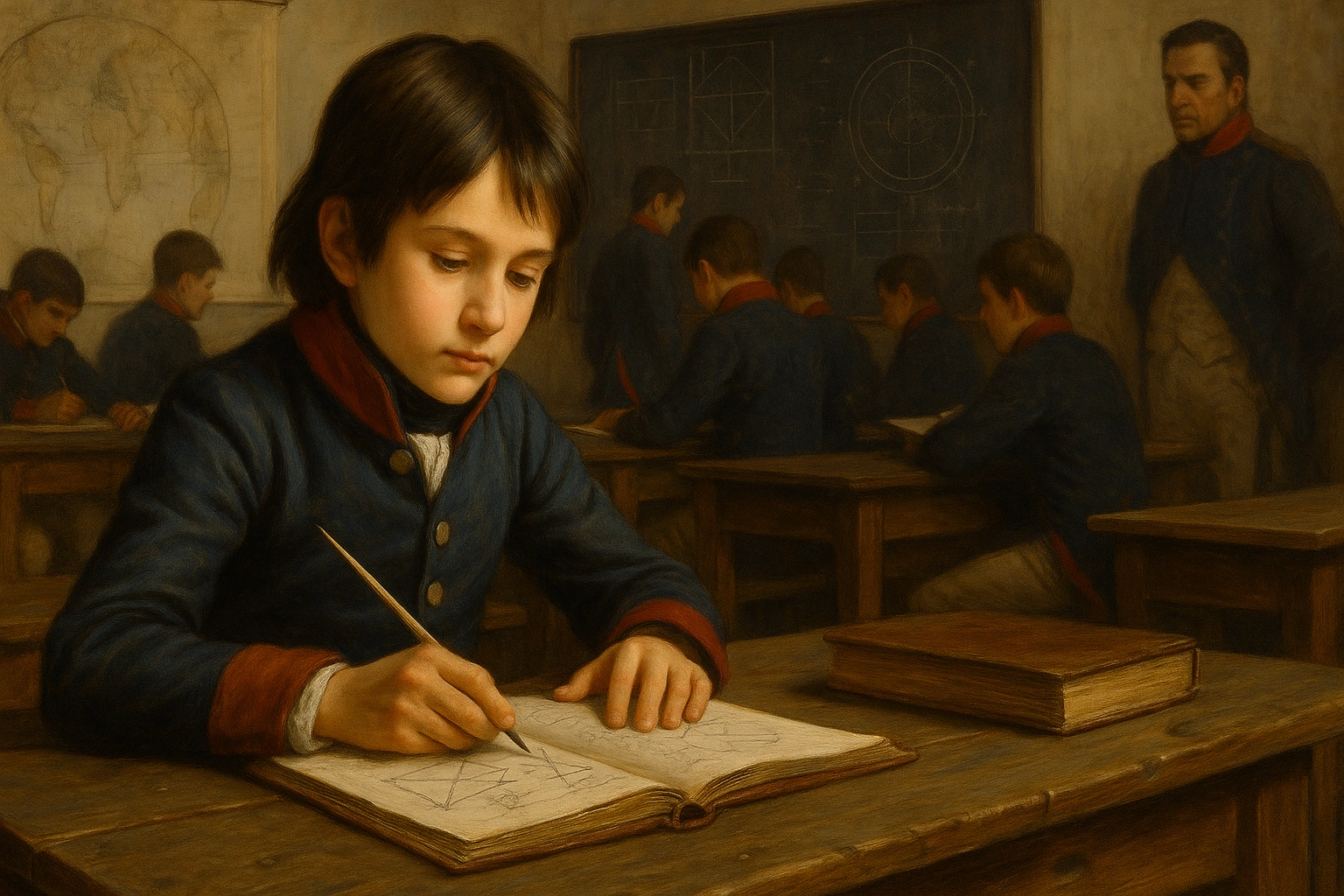
Entry into Military School
At the age of nine, Napoleon was sent to the military academy in Brienne-le-Château in mainland France, where he received a rigorous education focused on mathematics, science, history, and military training. He demonstrated remarkable talent in mathematics and military tactics.
Later, he enrolled at the École Militaire in Paris, France’s premier military academy, graduating as a second lieutenant of artillery in 1785 at just 16 years old. This accomplishment was notable given his modest origins and young age.
Early Military Career
In the early years of his career, Napoleon served in several French garrisons while the French Revolution erupted in 1789. The political upheaval of these years not only transformed France but also opened unprecedented opportunities for Napoleon’s advancement.
Napoleon and the French Revolution
The Revolution as an Opportunity
The French Revolution created a power vacuum that allowed ambitious officers like Napoleon to rise quickly. Thanks to his strategic brilliance and loyalty to the revolutionary government, he was rapidly promoted.
The Siege of Toulon (1793)
His first major military success came in 1793 during the Siege of Toulon, where French revolutionary forces sought to reclaim the city from British and royalist troops. Napoleon’s expert artillery tactics were decisive in achieving victory, earning him a promotion to brigadier general at just 24 years old.
The Suppression of the Paris Uprising (1795)
In 1795, Napoleon was again called upon to suppress a royalist uprising in Paris. His famous “grapeshot” tactic swiftly dispersed the insurgents, solidifying his reputation as a decisive and effective commander. This victory brought him closer to France’s new governing body, the Directory.
The Italian Campaign: The Beginning of the Legend
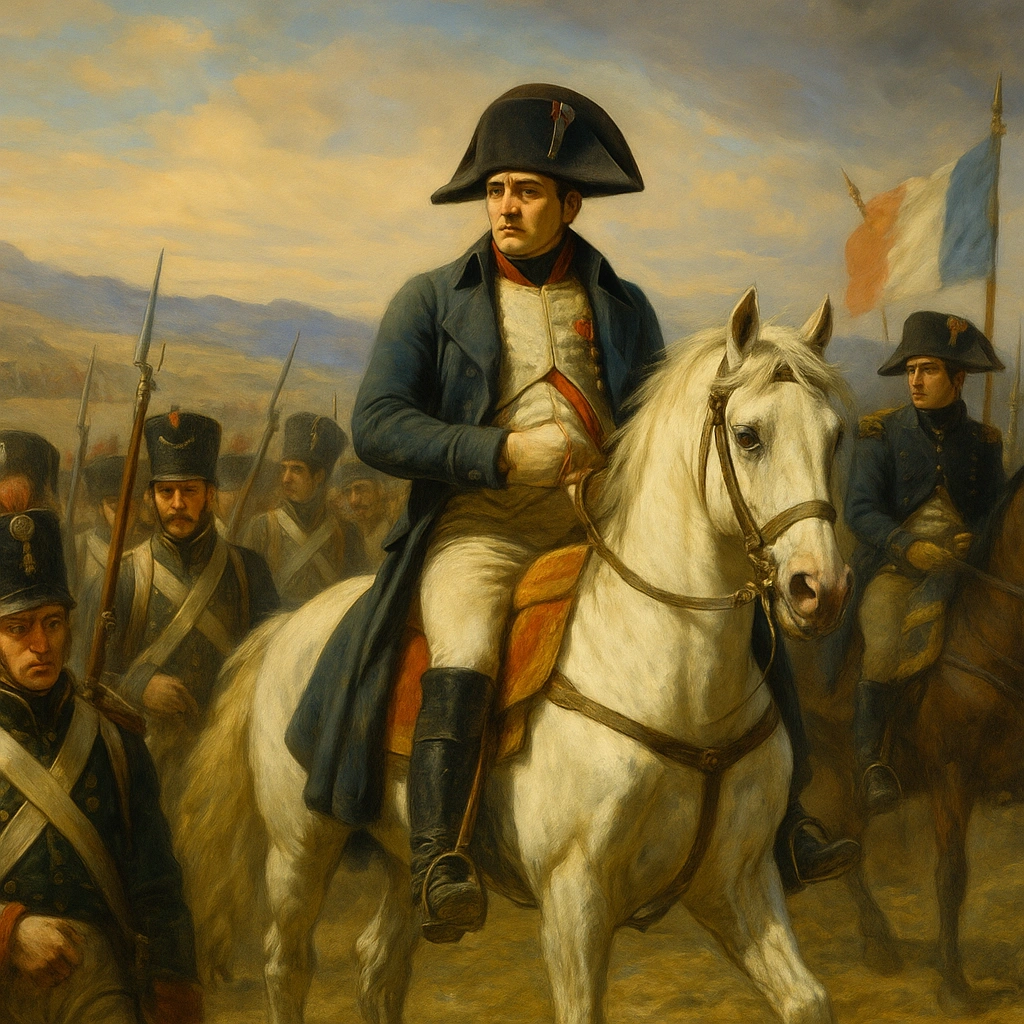
In 1796, Napoleon was appointed commander of the French Army in Italy. Despite limited resources and poorly equipped troops, he displayed an unparalleled ability to maneuver on the battlefield.
During this campaign, he defeated multiple Austrian and Sardinian coalitions, gaining widespread acclaim both in France and abroad. Additionally, he skillfully combined military victories with diplomatic treaties that expanded French influence.
The Italian campaign cemented his image as an unbeatable leader, brilliant strategist, and national hero.
The Egyptian Campaign
In 1798, aiming to weaken Britain by targeting its Mediterranean and Middle Eastern interests, Napoleon led an expedition to Egypt. Although he achieved significant land victories, such as the Battle of the Pyramids, his fleet was destroyed by Admiral Nelson at the Battle of the Nile, leaving him isolated.
Despite setbacks, Napoleon used the campaign to advance scientific study of ancient Egypt. His team of scholars, known as the savants, made important discoveries, including the famed Rosetta Stone.
The Coup of 18 Brumaire
In 1799, after secretly returning to France, Napoleon capitalized on growing dissatisfaction with the Directory to orchestrate a coup on 18 Brumaire (November 9, 1799). The coup ended the Directory and established the Consulate, with Napoleon as First Consul.
Although republican forms were officially maintained, Napoleon effectively became France’s undisputed ruler.
Domestic Reforms Under the Consulate
During his time as First Consul, Napoleon implemented profound reforms that stabilized France:
-
Civil Code (Napoleonic Code): Standardized French law, influencing legal systems worldwide.
-
Education Reform: Established state-controlled lycées and centralized education.
-
Concordat with the Catholic Church: Restored relations with the Papacy, pacifying religious conflict.
-
Bank of France: Stabilized national finances.
-
Public Administration: Created an efficient, centralized system led by prefects.
These reforms solidified his popularity and paved the way for his next major political transformation.
The Proclamation of the Empire
In 1804, Napoleon was crowned Emperor of the French in a grand ceremony at Notre-Dame Cathedral, with Pope Pius VII present. In a symbolic act of independence, Napoleon placed the crown on his own head.
With this coronation, France officially transitioned from a revolutionary republic to a personal empire driven by one man’s ambition and genius.
The Napoleonic Wars
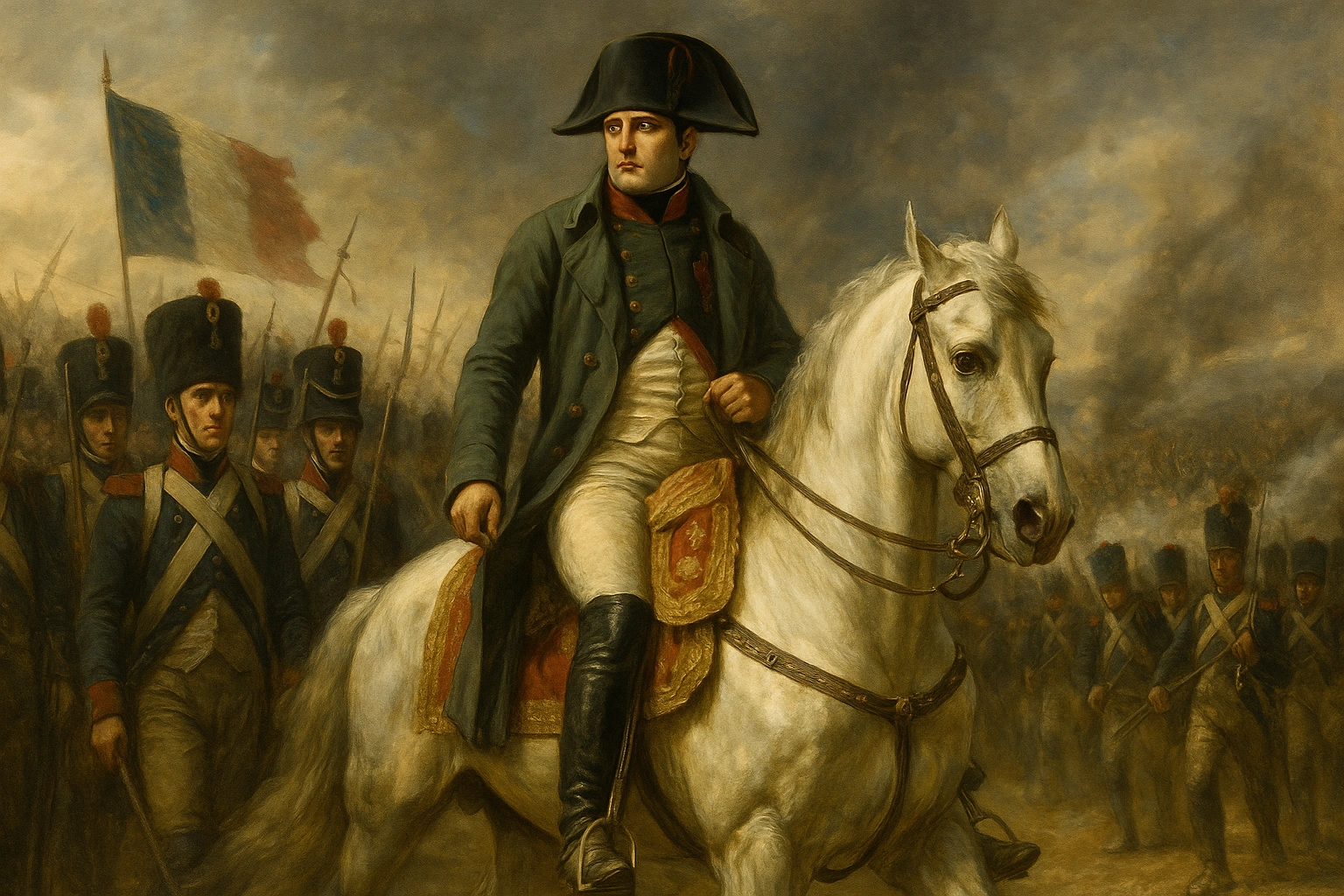
Early Victories
During the first phase of the Napoleonic Wars (1803–1815), Napoleon secured stunning victories:
-
Austerlitz (1805): Regarded as his masterpiece, defeating combined Russian and Austrian forces.
-
Jena-Auerstedt (1806): Crushed the Prussian army.
-
Friedland (1807): Defeated the Russians, forcing the Treaty of Tilsit.
During these years, the French Empire reached its greatest territorial extent, dominating most of continental Europe.
The Continental Blockade
To economically weaken Britain, Napoleon implemented the Continental Blockade, forbidding European trade with Britain. However, the strategy also hurt allied economies and fueled discontent across occupied territories.
The Peninsular War
In 1808, Napoleon intervened militarily in Spain, overthrowing the king and installing his brother Joseph Bonaparte. Spanish resistance, supported by guerrillas and British forces under Wellington, turned this into a prolonged and costly conflict, known as the Peninsular War.
The Russian Disaster
In 1812, Napoleon launched his ambitious and disastrous invasion of Russia with the Grand Army, numbering over 600,000 soldiers.
Although he captured Moscow, the brutal winter, lack of supplies, and Russian scorched-earth tactics decimated his forces. Fewer than 100,000 soldiers returned to France, marking the beginning of his military downfall.
The Fall of the Empire
The Sixth Coalition
Following the Russian debacle, European powers formed the Sixth Coalition (Britain, Prussia, Austria, Russia, and others). Defeated at the Battle of Leipzig (1813), Napoleon was forced to abdicate in April 1814.
Exile to Elba
Napoleon was exiled to the island of Elba, where he briefly ruled as sovereign. However, his ambition remained undiminished.
The Hundred Days and Waterloo
In March 1815, Napoleon escaped Elba and triumphantly returned to France, in what became known as the Hundred Days. He regained power and reorganized his forces.
Ultimately, on June 18, 1815, he suffered a decisive defeat at the Battle of Waterloo by allied forces led by the Duke of Wellington and Prussian commander von Blücher.
The Legacy of Napoleon Bonaparte
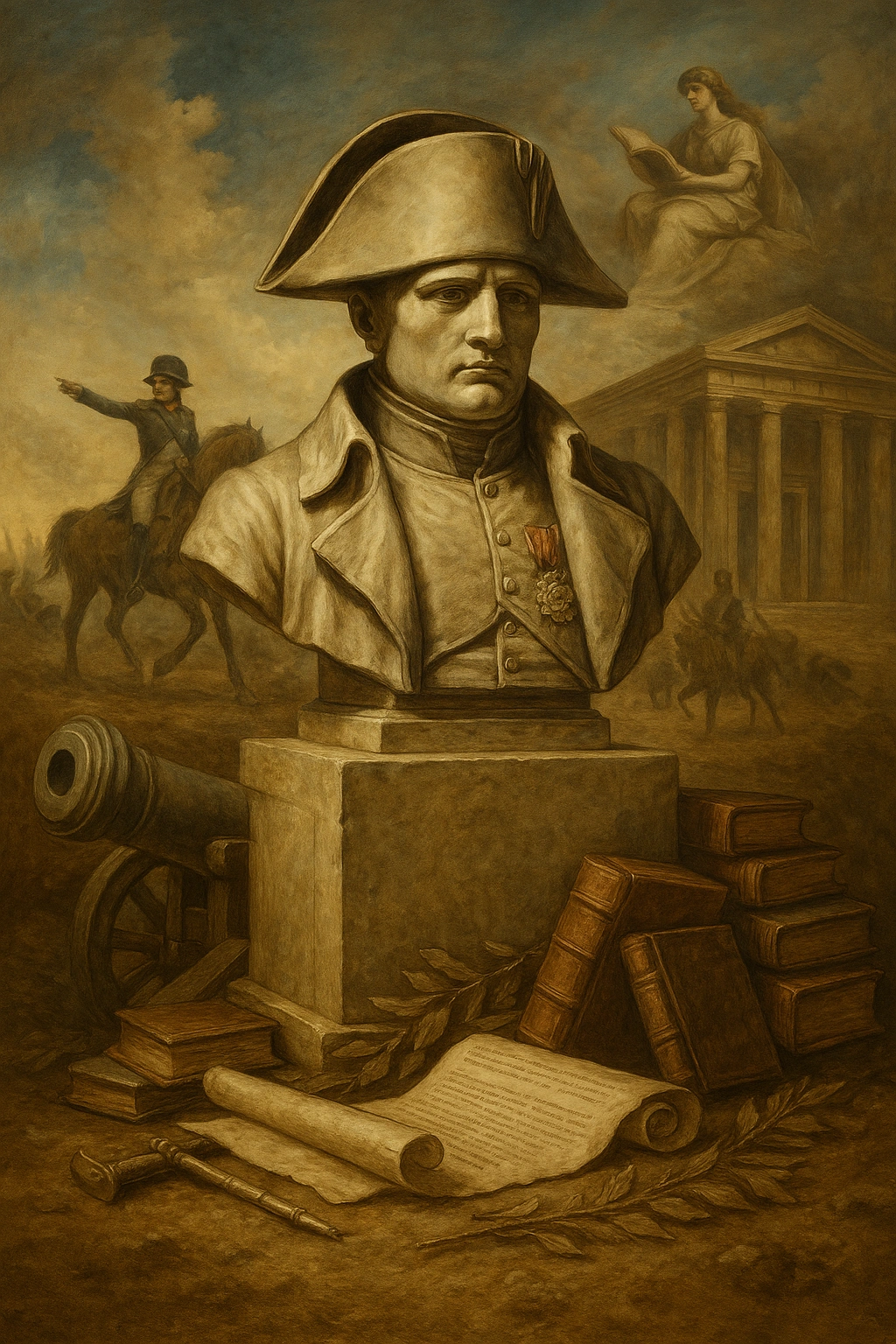
Napoleon’s legacy is complex and multifaceted:
-
Military: Revolutionized modern warfare with innovations in mobility, artillery, and logistics.
-
Legal: The Napoleonic Code remains influential in numerous legal systems worldwide.
-
Political: Implemented administrative, educational, and fiscal reforms still admired today.
-
Cultural: His life has inspired countless studies, novels, films, and debates.
Though his ambitions sparked devastating wars, his reforms modernized Europe and laid foundations for modern states.
Napoleon Bonaparte was a man of contrasts: brilliant yet ruthless, visionary yet authoritarian, military genius and civil reformer. His life encapsulates the tensions of a Europe transitioning between monarchical traditions and revolutionary ideals.
His impact is undeniable. Even more than two centuries later, his figure continues to captivate historians, politicians, and the general public as a symbol of what human ambition can achieve — and lose.

